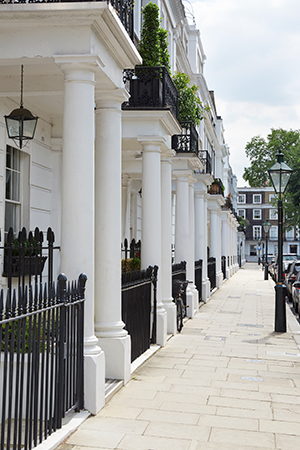- Wear and Tear Allowance replaced with tax deduction regime
- Changes put into effect regarding liability on gains from house sales
- Property-related costs may be deductible for tax purposes
 The UK residential property market has historically been an attractive proposition for overseas investors. Moreover, given the continued increase in the value of houses, expatriates with a plan to return to the UK in the future have generally retained their properties to keep a foothold in the market.
The UK residential property market has historically been an attractive proposition for overseas investors. Moreover, given the continued increase in the value of houses, expatriates with a plan to return to the UK in the future have generally retained their properties to keep a foothold in the market.
In light of these increases, and to reduce the generosity of tax treatment of the buy-to-let sector, HM Treasury and HM Revenue & Customs have made a number of changes to the tax regime for property investors. These have potential implications for UK property owners who reside in Japan.
Renting
Previously, all landlords were able to claim a tax deduction for renewals expenditure through the Wear and Tear Allowance.
This allowance broadly allowed landlords letting furnished properties to deduct 10% of their relevant rental amount when calculating the UK taxable profits from their property business.
The relevant rental amount is defined as rental receipts less any expenses normally be borne by the tenant—such as council tax or utility bills—that are, in fact, paid by the landlord.
As of April 2016, this relief has been abolished and replaced with a more accurate regime, whereby a tax deduction may be claimed based on actual renewals expenditure over the period.
Since all landlords are able to claim tax relief for financial costs on borrowings used in their residential property business, their mortgage interest payments are currently fully deductible when calculating the UK taxable profit of landlords.
In 2015, the UK government announced that the interest deduction would be limited to the basic rate, meaning that higher-rate taxpayers will have limited relief. Tax relief will be restricted to the basic income tax rate of 20%, rather than the higher rate of 40–45%.
The restriction will be phased in. The percentage of total interest incurred that is capped at the basic income tax rate will be: 25% in the first year of the new system (until 5 April 2018); 50% in the second; 75% in the third; and the entire amount for all subsequent periods. Whether this has an impact on overseas property owners will depend on their level of UK rental—and other UK source taxable—income in any given tax year.
Selling
When UK individuals dispose of their main home, the gain on sale may be exempt from Capital Gains Tax. Main residence relief is likely to be available if the individual has lived in the property for the entire duration of ownership.
This relief also takes into account the fact that individuals may leave their property in certain circumstances before its sale. This is because an exemption may continue to be available for the last 18 months of ownership, regardless of whether or not they continue to live there.
However, if the period of absence is more than 18 months, the relief may not exempt the whole of the gain because only the proportion attributable to the final 18 months is likely to qualify for the exemption.
This 18-month period was reduced from 36 months for disposals on or after 6 April 2014. There is the potential to claim exemption for certain qualifying periods of absence if all relevant conditions are met. Detailed analysis should be undertaken in all cases with respect to periods of non-residence or non-occupation for any other reason.
Prior to April 2015, individuals who were not UK tax residents or were temporarily non-resident in the UK were not typically liable for UK Capital Gains Tax on any gains arising on the disposal of UK residential property in which they had invested.
From 6 April 2015, however, such individuals have been liable on gains arising from the disposal of UK residential property.
They will also have an obligation to file a non-resident Capital Gains Tax Return within 30 days of the completion of the sale. Individuals may be entitled to the UK Capital Gains Tax-free annual exemption, which in fiscal 2016–17 is £11,100.
The final measure that has been taken to make the UK residential market less attractive for investors is the 3% stamp duty surcharge tax that investors purchasing additional residential properties are charged.
Investors in Japan
For tax purposes, it is worth considering the impact of depreciation of a UK property above a certain age. This concerns only individuals who are permanent residents—from a tax rather than a visa perspective—in Japan, and who have been in the country for five of the past 10 years, and only if the property is rented out.
If, for example, you own a Victorian brick townhouse in London, the property may already have exceeded its useful life as defined by Japanese tax law. For example, the property may depreciate over the coming seven years so, if the relevant conditions are met, it may be possible for there to be an annual tax deduction in Japan of 14.3% of the property value, rather than the land value—which should be taken out of the overall cost.
There are also other property-related costs that may be deductible for Japanese tax purposes. In terms of the possibility of double taxation on property income and gains, in both the UK and Japan, there is potential for double tax relief through the UK–Japan tax treaty of 2014 .
The interaction between the UK and Japanese tax regimes allows some scope for tax relief for those individuals seeking to invest in their own property in the UK residential market by renting it out while seconded in Japan.
With respect to possible Japanese tax treatment, advice must be taken on a case-by-case basis. You should confirm whether this treatment is available before claiming tax-deductible depreciation on relevant properties.

